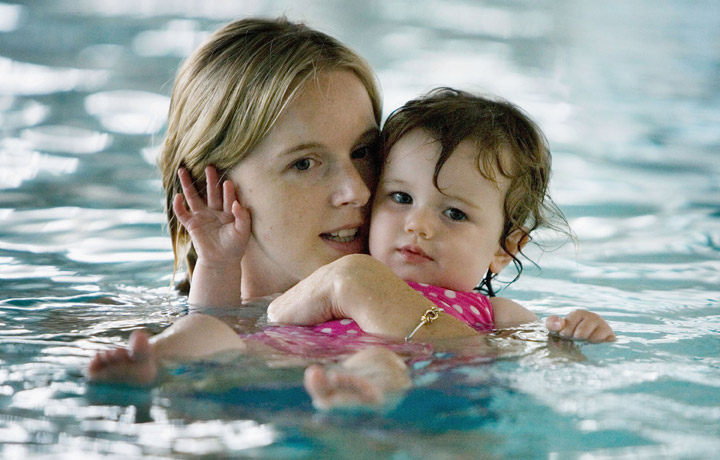OTTAWA – For one million babies born every year on this planet, it’s as if they were never here.

That’s how many newborns die on the day of their birth, along with millions more in their first month of life, all without ever having been formally documented.
That lack of vital birth and death registration in poor countries will be a major topic of discussion at this week’s international meeting on improving the plight of children, newborns and mothers in the developing world.
Prime Minister Stephen Harper is hosting the three-day conference in Toronto, after having made the issue his signature international aid priority in 2010.
READ MORE: 5 made-in-Canada ideas helping women and babies around the world
Birth registration is a key to making progress on the issue, said Rosemary McCarney, the co-chair of the Canadian Network for Maternal Newborn and Child Health.
“If you don’t know who’s being born, and you don’t know how long they’re living, and you don’t know what they’re dying of, how the heck can you do good health care policy in countries that are resource-poor?” McCarney said.
“You have to spend every dollar to make it count.”
McCarney is helping to lead a Canadian network of 70 organizations that was formed after Harper announced the so-called Muskoka Initiative at the 2010 G8 summit, which Canada hosted in Ontario cottage country.
- Life in the forest: How Stanley Park’s longest resident survived a changing landscape
- ‘Love at first sight’: Snow leopard at Toronto Zoo pregnant for 1st time
- Buzz kill? Gen Z less interested in coffee than older Canadians, survey shows
- Carbon rebate labelling in bank deposits fuelling confusion, minister says
READ MORE: 6 Canadian game-changing ideas for global health care
International figures such as philanthropist Melinda Gates, UN secretary general Ban Ki-moon, the Aga Khan and Queen Rania of Jordan are among those who will join dozens more in the world of international aid starting Wednesday in Toronto.
Harper will open the event Wednesday afternoon, and is widely expected to use the gathering to burnish Canada’s global aid credentials, which have faced criticism since his government froze foreign aid spending in 2012 as a deficit-fighting measure.
In 2010, Harper committed $2.8 billion over five years to the issue, but McCarney’s network is calling on him to up the ante with a new commitment of $3.25 billion at this week’s summit.
The government says it will have a major announcement this week.
In a series of speeches and announcements over the past week, cabinet ministers have been trumpeting Canada’s – and Harper’s – leadership on the issue as they dole out the last of existing money. And they’re acknowledging the work that still needs to be done.
“More than 100 developing countries around the world lack fully functioning civil registration and vital statistics systems,” Immigration Minister Chris Alexander said Sunday in announcing $20 million over four years to the Inter-American Development Bank’s fund for civil registration.
“An estimated one-third of the world’s births and two-thirds of the world’s deaths are not properly registered.”
The proper registration of newborns is seen as one way to lower what experts say is the unacceptably high 2.9 million children who die within 28 days of being born each year. Another 2.6 million still births occur annually.
The data was compiled in a series of papers drawing upon 55 experts in 18 countries that were published last week in the medical journal The Lancet.
Dr. Mickey Chopra, the chief of health for the UN Children’s Fund (UNICEF), said not being able to track births has meant an overall lack of funding to help young children.
“If you don’t do that, it doesn’t get attention, it doesn’t get resources to make it better,” Chopra said in an interview.
“Donors are not putting money into newborn health, and as a result, the progress we’re making on reducing newborn deaths is the slowest compared to maternal deaths or child deaths.”
Dr. Peter Singer, the head of Grand Challenges Canada, a government funded, non-profit agency, said getting better vital statistics also has an added benefit: it increases accountability on where the money is spent to make it more effective.
“That focus on accountability was absolutely pivotal in saving more lives of women and children,” said Singer. “And that was the prime minister’s and Canada’s leadership with the original Muskoka Initiative.”
Harper and Tanzanian President Jakaya Kikwete were appointed co-chairs of the UN commission on accountability for women’s and children’s health in the fall of 2010 following the G8.
A discussion that ties together accountability and vital statistics is to take place Thursday during the Toronto conference.



Comments